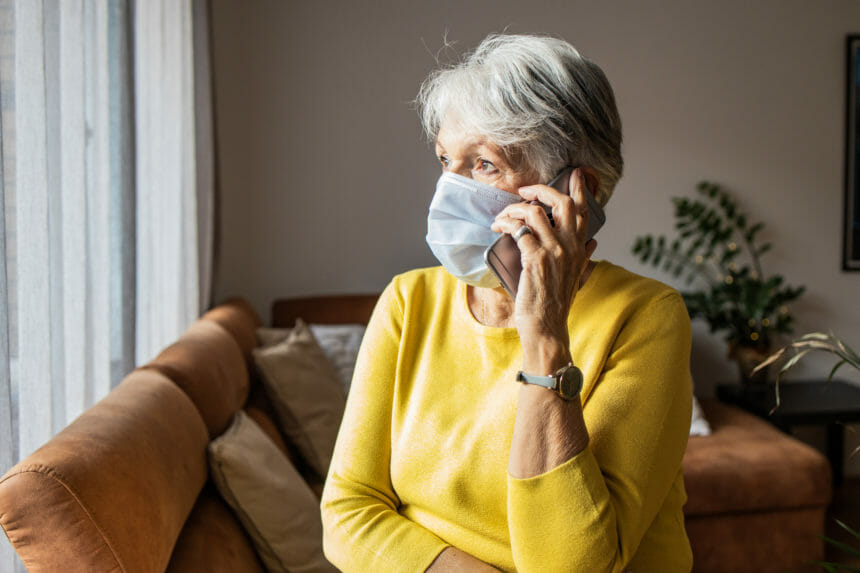
Using cell phones, computers and other technology to communicate may reduce the risk of social isolation in older adults, a new study finds.
Social isolation is linked to a variety of adverse health outcomes including premature death from all causes, and its effects have been compared to smoking and physical inactivity as a risk factor for poor health.
Study participants included more than 6,700 community-dwelling adults aged 65 years and older who participated in the National Health and Aging Trends study. Investigators examined self-reported technology use from 2015 to 2019.
At the study’s start, 88% of participants who were not socially isolated had a working cell phone and 71% reported having a working computer. A majority (56%) also said they used email or text messaging.
Participants who had access to or used these devices and who said they used email or text messaging in the year prior had a lower risk of social isolation than older adults who reported they did not access or use these technologies.
In addition, older adults who reported that they had access to a computer over the four-year study period were less likely to be socially isolated than their counterparts who said they did not.
Technology is increasingly thought of as a solution to the problems of being cut off from regular contact with others, the investigators wrote. “These findings suggest that technology has an important role in approaches that seek to prevent social isolation among older adults,” they concluded.
Full findings were published in the Journal of the American Geriatrics Society.
Related articles:
Residents without family contact were more likely to die during early pandemic: study
Study unveils ‘silent epidemic’ of loneliness among older women during pandemic
Loneliness can be deadly for people with serious health conditions: study




